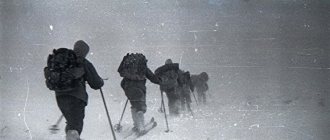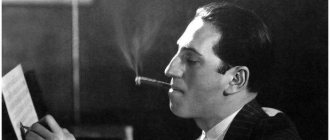Daniel Defoe (1660-1731) was a versatile and prolific English writer and publicist. It is believed that it was he who made the literary genre of the novel popular in Great Britain. The most famous hero of his works in the world is Robinson Crusoe. In total, Defoe wrote more than 500 books, magazines and pamphlets on a variety of topics, ranging from politics and economics to religion, psychology and family. He laid the foundations of economic journalism and is considered the founder of British intelligence.
Childhood and adolescence
Daniel Defoe was born around 1660 near London in the small town of Cripplegate. His father's name was Jay Fo, he was a fairly wealthy merchant, sold meat and, in addition to this, also had a small candle factory. Both father and mother were ardent Puritan dissidents, that is, they opposed the English mainstream church.
Daniel's parents prepared him for the Presbyterian pastorate, so at the age of 14 they sent him to theological seminary. After her, the young man graduated from Morton Academy in Stoke Newington. He, as an exemplary student, studied Greek, Latin and classical literature well, but all this was not interesting for the young man. He was fascinated by commerce and trading, and Daniel was ready to do this all his life. Although, all the same, he always remembered the Newington school with warmth because it gave him a lot of necessary knowledge.
Biography 2
Daniel was born in 1661 in the Cripplegate area of London. The family of the future novelist was not poor - his father was engaged in the meat trade. Relatives saw a career as a pastor for the boy. Therefore, upon reaching the age of 14, Daniel began studying at a theological seminary. After graduating from the seminary, Daniel enters the Protestant Academy. But the young man himself never saw himself as a pastor. He was attracted to commerce and trade. By the age of 20, Daniel opened his first business, which brought him profit for 10 years. It was a hosiery company. Afterwards he was engaged in the trade of wine, building materials, as well as tobacco and tobacco products, doing business not only in his homeland, but also in some European countries.
Daniel was actively interested in politics. He also gained fame in the world of literature for his works on politics and the public after 1699. With fame came both supporters and hostile critics. Daniel Defoe's politically oriented work once led him to his arrest and sentence to the pillory. This punishment was supposed to lead to mockery and shame, but it worked in the opposite direction. The writer was praised and showered with flowers, the crowd sang the “Hymn to the Pillory” written by him.
Later, the writer was offered to work secretly for the government, and was also made a secret agent of Britain in Scotland. The purpose of his work was to inform his government about the activities of the Scottish opposition and influence public opinion through the publication of his works. In exchange, the government paid off Daniel's fine and his family's debts, thereby saving Daniel, his wife and eight children from starvation.
Later, in 1719, the writer’s most famous work was published. "Robinson Crusoe" captivated the reader with the scale of its concept and the fascination of the plot. After the success of the book, Daniel published a sequel to the novel, which did not cause a similar sensation, but also attracted due attention. The third book in the Robinsonade series was also released, but it also did not bring initial success.
The novelist died while on the run, alone, in 1731. His sons had long since gone about their business, and his daughters lived in their own families. The funeral was taken over by the landlady of his rented apartment.
Biography by dates and interesting facts. The most important.
Trade
At the age of nineteen, Defoe completed his studies and, as his father advised him, began commercial activity. In London there was an office of a wholesale hosiery company that dealt with foreign countries. Daniel's father sent him to this office to study trade practice and accounting; the young man combined his studies with work as a clerk for a hosiery merchant.
Defoe graduated from the office in 1685 and immediately began the wholesale hosiery trade in Cornhill. The company he opened lasted until 1695. Then he was engaged in the trade in bricks and tiles, wines and tobacco. On duty, he had to visit Portugal, France and Spain, where he became acquainted with European life and studied foreign languages.
Very often Daniel entered into risky transactions, was repeatedly on the verge of bankruptcy, but always found a way out of the current situation.
Childhood and youth
Defoe's exact date of birth is unknown. The future novelist appeared in the London area of Cripplegate around 1660 in the family of a wealthy meat merchant and the owner of a candle factory. The parents of Daniel Fo - this is the real name of the writer - were adherents of Presbyterianism, a Protestant movement based on the teachings of John Calvin.
The parents saw their son as a Presbyterian pastor in the future, so at the age of 14 they enrolled him in a theological seminary. After graduating, Fo entered the Protestant Academy in Stoke Newington. The young man excelled in classical literature, knew Latin and Greek excellently, but had no intention of becoming a pastor: Daniel was attracted by commerce and trading.
Bust of Daniel Defoe
After graduating from the academy, Daniel Defoe, on the advice of his father, got a job in the office of a hosiery company that traded with foreign suppliers. 19-year-old Daniel learned the basics of accounting in an office and at the same time worked as a clerk in a stocking dealer's shop.
In the mid-1680s, Defoe thought he had learned everything and went into business: he opened a hosiery company in Cornhill, which operated successfully for 10 years. Then the businessman mastered new directions: he traded in wine, tobacco products and building materials.
Expanding the business, he traveled to France, visited Portugal and Spain. On long business trips, Daniel Defoe got acquainted with the life of Europe, studied the customs and languages of the population.
Daniel Defoe in his youth
Contemporaries described the Briton as a risky businessman who embarked on dubious ventures and repeatedly found himself on the verge of ruin. But every time Defoe found solutions that helped get the money back.
In addition to business, the Briton was interested in political and religious affairs. In the mid-1680s, the future novelist participated in the Duke of Monmouth's rebellion, which opposed the policies of the last British Catholic king, James VII. The authorities suppressed the uprising and executed Monmouth. Daniel Defoe hid from his pursuers and miraculously escaped punishment.
Policy
In addition to commerce, Daniel was always interested in religious and political struggle. For example, in 1685 he was a participant in the rebellion of the Duke of Monmouth, who opposed the policies of James II Stuart. On July 6, 1685, the Battle of Sedgemoor took place, the rebels lost it, the authorities then strangled the uprising, the Duke was executed, and Defoe himself barely managed to hide from persecution.
Back in 1681, he began to become interested in poetry and wrote poems on religious topics. And in 1687 he wrote his first pamphlet, in which he discussed freedom of conscience and addressed His Royal Highness. The occasion was the recently signed declaration ending punitive religious laws. This first literary performance established Defoe as a good writer and a mature politician, although he was only 26 years old at the time. However, many of his friends did not accept such opposition to the royal declaration. This greatly disappointed Defoe and he abandoned his literary intentions and again took up exclusively trading.
But after a few years, Daniel returned to literature. He wrote satirical poems and essays, pamphlets and treatises in which he exposed unjust laws and called for reforms. His satire was very popular among the people, and Defoe soon became a prominent political figure.
When Queen Anne came to power, Defoe went to prison for his pamphlets and was pilloried three times.
To be freed from prison, Daniel had to cooperate with the authorities; he became a secret agent and carried out government assignments for several years.
Interesting facts from the life of Daniel Defoe
- At birth, the future English writer was named Daniel Fo.
- Defoe was ashamed of his origins, so he changed his surname given at birth and ranked himself among the nobles.
- Defoe is considered one of the first writers to become interested in the novel genre. The writer helped popularize it in his native country, and some researchers even consider him the founder of the work of English novelists.
- Defoe, whom most people know only as the author of Robinson Crusoe, is very extensive and varied: he wrote more than 500 novels, pamphlets and magazine articles (including on psychology and supernatural phenomena).
- Defoe is considered the founder of economic journalism.
- In the continuation of the novel about Robinson Crusoe, little known in Russia, the main character travels through China and Rus'.
- Defoe was born into the family of a meat merchant, who also owned his own candle factory. He received a church education and wanted to become a pastor, but in the end he decided not to connect his life with the church.
- Defoe's first works were poems on religious themes.
- The writer took part in a failed uprising against the English king.
- After graduation, Defoe worked for a stocking wholesaler. Continuing to engage in commerce, he bought his own stocking production, and then a brick and tile factory, but completely failed. These business projects were followed by others, but all of them were doomed to failure.
- Daniel Defoe was one of the most significant politicians of his era - although he did not officially have a court position, the writer could influence the decisions of the king and the government of Britain.
- Defoe is called the founder of British intelligence.
- For one of his satirical pamphlets, Defoe was sentenced to pillory and imprisonment. While under arrest, he continued to engage in creativity, writing “Hymn to the Pillory.” A year later he was released, but on the condition that Defoe would carry out secret orders from the crown.
- The plot of Robinson Crusoe is based on a true story: at the beginning of the 18th century, a sailor from Scotland quarreled with the captain and landed on an unknown island in the Pacific Ocean with a modest supply of weapons and provisions. He lived there for 4 years until the Scot was taken by a passing ship.
Literature
Defoe was already approaching 60 years of age when he heard the real story of how a sailor from Scotland, Alexander Selkirk, ended up on the uninhabited island of Juan Fernandez in the Pacific Ocean. He lived there for 4 years until he was discovered and picked up by a ship commanded by Woods Rogers. Captain Rogers later described these events in the book “Sailing Around the World.” And soon after this, Defoe also caught the eye of Style’s essay “The History of Alexander Selkirk.” Daniel became seriously interested in this Scottish sailor, and Defoe's creative mind turned a unique story into a large-scale work of art.
Well, who among us, at a very young age, did not read “The Adventures of Robinson Crusoe,” where the main character lived on a deserted island for 28 years and managed not only to survive, but also to create his own personal world.
The success of this novel was so phenomenal that Daniel Defoe soon took up its continuation. In 1719, the novel “The Subsequent Adventures of Robinson Crusoe” was published, and a year later the writer composed “Serious Reflections During the Lifetime and Amazing Adventures of Robinson Crusoe with His Vision of the Angelic World.” But, it must be said that in terms of popularity the next two novels cannot be compared with the first novels; they did not have such reader success.
Now Defoe devoted all his time, and one might say, his life, only to creativity. One after another, works come from his pen:
- 1720 - “Captain Singleton”, “Memoirs of a Cavalier”;
- 1722 - “Colonel Jack” and “Moll Flanders”, “Diary of the Plague Year”;
- 1724 - “Roxana”;
- 1726 - “Travel through England and Scotland.”
His writings were largely dominated by the genre of adventure novels, historical and adventure themes. He also wrote a lot of novels and memoirs.
Bibliography
- 1719 – “Robinson Crusoe”
- 1719 – “The Further Adventures of Robinson Crusoe”
- 1720 – “King of the Pirates”
- 1720 – “The Life and Pirate Adventures of the Glorious Captain Singleton”
- 1720 – “Memoirs of a Cavalier”
- 1722 – “Diary of the Plague Year”
- 1722 – “The Joys and Sorrows of the Famous Moll Flanders”
- 1722 – “The History of Colonel Jack”
- 1724 – “The Happy Courtesan, or Roxana”
- 1724 – “General History of Piracy”
- 1726 – “History of the Devil”
Last years of life and death
Defoe was married to Mary Tuffley, the woman gave birth to eight children for the writer, but it turned out that he died alone.
The last year of Daniel Defoe's life turned out to be terrible and gloomy. The publisher who had deceived him tried to punish him cruelly, although quite deservedly,; he pursued him, attacked him once with a sword, but Defoe, despite his advanced age, was then able to disarm his enemy.
These constant threats and persecutions eventually broke the sickly old man, and he went mad. The man he had deceived threatened with revenge, and Daniel ran away from his family, went into hiding, called himself by a false name, and constantly moved from place to place in different cities of England.
Having wandered around for a while, Defoe returned to England in 1731 and settled in Moorfield, the most remote area of the city. Here the famous creator of Robinson Crusoe died old and alone on April 26, 1731.
None of his relatives knew about his death; the landlady took care of the funeral. She sold the things that were left of Defoe at auction to reimburse herself for funeral expenses.
Death
The world famous novelist was dying alone. The publisher, deceived by him, pursued Defoe and made the last year of his life hell. Hiding from his pursuer, Daniel Defoe left his family, moved from city to city, and when the publisher overtook him and tried to pierce him with a sword, the 70-year-old writer disarmed his enemy.
Distraught with fear and constant threats, Defoe hid under false names, renting apartments and rooms. In 1731, the writer rented a home in a remote area of London, where he died at the end of April. There was neither his wife nor his eight offspring nearby. The sons left for trade, the daughters got married and started families. There was no one to look for his father in the slums of London.
Daniel Defoe's grave
The cause of the novelist's death is said to be a fit of lethargy. The owner of the apartment took upon herself the hassle of organizing the funeral, and then, in order to reimburse the expenses, she took the remaining belongings of the deceased tenant to auction. The newspapers responded to the death of the novelist with short obituaries, many of them ironic, calling Defoe “the greatest citizen of the Republic of Grub Street” - a famous street in London where low-class writers gathered.
A white slab appeared on the grave of the writer and publicist, which was soon overgrown with grass. But a century later, in 1870, a British tabloid appealed to the country's boys and girls to donate money for a monument to Daniel Defoe - the century-old slab was cracked by a lightning strike. Thousands of admirers responded. A granite monument appeared on the grave with the words carved: “In memory of the author of Robinson Crusoe.”
Biography
The life of the famous writer and great adventurer Daniel Defoe seems to his contemporaries to be a series of real mysteries. He is called the founder of the modern storytelling genre and the father of economic journalism, and is suspected of international espionage and political intrigue in medieval England. Defoe's moral principles are regarded very ambiguously: he seemed to balance between two extremes, personifying Puritan piety and bourgeois power at the same time. But the unprecedented talent of Daniel Defoe is beyond doubt, because his main brainchild - the story of Robinson Crusoe - has become a cult novel of world significance. And, probably, there is hardly a person in the civilized world who has not heard about the adventures of a lonely sailor. Daniel Defoe was born in London into a family of English Protestants. From childhood he prepared to become a pastor and received the appropriate spiritual education at one of the most elite academies in the capital. But contrary to the sentiments of his parents, the future writer chose a worldly life, and the most adventurous one at that. Daniel had barely turned twenty when he opened his own business, investing almost all his available money in it. In business, Defoe did not like to waste his time on trifles, preferring only large and truly risky transactions. Moreover, the writer was well versed in economics and politics, which helped him gain trust in high circles. And we are talking not so much about the bourgeoisie, but about the royal family itself. It is known that Defoe contributed in every possible way to the enthronement of King Guillaume of Orange, and during his reign, accordingly, he “played favorites.”
Illustration by Ira Crowe “D. Defoe at the pillory July 29, 1703." (1800, London)
And while Daniel Defoe was having fun in the fields of politics and commerce, looking for himself in literature and journalism, and shining in secular society, his wife Mary Tuffley raised a bunch of children almost alone. When the children grew up, none of them felt a special feeling of love for their father. By that time, Defoe was already old and, fairly tired of his hectic life, began to feel the need for simple family happiness. Probably, it was here that a certain turning point occurred in the life of Daniel Defoe: he seemed to realize that his time was running out, and the main happiness in life was irretrievably lost. At the same time, a new literary Defoe was born - not a daring pamphleteer-provocateur, but a sensitive, infinitely touching psychologist, describing his own tragedy of loneliness. “I clearly felt how much happier my present life, with all its sufferings and hardships, was than the shameful, sin-filled, disgusting life that I led before. Everything in me changed, I now understood grief and joy completely differently, my desires were not the same, my passions lost their sharpness,” the writer admitted through the mouth of Robinson. The last years of Defoe's life were spent in illness and loneliness. Sometimes the writer had to hide from creditors and deceived publishers, wandering around rented London apartments. When the writer died, even his relatives did not know about the fact of Defoe’s death. It is believed that the cause of Defoe's death was a lethargic attack. Defoe's funeral was organized by the owner of the house where Daniel was staying at that time. To cover burial costs, she had to sell off some of the writer’s personal belongings. Several mocking obituaries were dedicated to the death of Daniel Defoe, and Defoe's grave in London's Bunhill Fields cemetery was covered with a simple tombstone, which was soon overgrown with grass and became invisible. And only more than a hundred years later, a granite monument to Defoe’s memory was opened at the writer’s burial site.
Monument to Defoe at Bunhill Fields Cemetery, London
Curriculum Vitae
The greatest writer of England, Daniel Defoe, is the founder of journalism, one of the first newspaper publishers, and a talented novelist. Over the years of his life he wrote about 500 works of various genres.
How did he spend his childhood and youth?
A great writer was born in London. This happened in 1661. His father was a wealthy butcher and a dissident, that is, a man who did not recognize the Episcopal Church. Daniel's ancestors were landowners, his grandfather had a farm in Noramptonshire.
The childhood and youth of the greatest genius coincided with the reign of Charles II, who introduced the law of church unity and the supremacy of the Episcopal Church. Daniel was brought up according to the old religious orders. The boy read and rewrote the Bible from childhood. This book became a guide for his entire life.
What kind of education did you receive?
His parents wanted Daniel to become a priest, and at the age of 14 they sent their son to Newington Academy. This educational institution belonged to Charles Morton, an exiled pastor of the Church of England. The Academy trained sectarian priests. In addition to theology, students studied philosophy and other sciences, but most importantly, teaching was conducted in the purest English, which students studied thoroughly throughout their years of study at this institution.
At the Academy, Defoe learned Latin, Greek, and French. The writer knew mathematics, history, geography very well, and was familiar with the economic and industrial situation of various countries. At the end of his studies, Daniel changed his mind about becoming a sectarian pastor. This position did not bode well. Defoe studied at the Academy not for 3, but for 5 years, and in the last years of his studies he read a lot. He graduated from this educational institution at the age of nineteen and, on the advice of his father, became a businessman.
Trading activities
After graduating from the Academy, his father hired young Daniel as an accountant in a wholesale hosiery company located in the City of London. Defoe studied the intricacies of commerce for about 5 years. Then Daniel became interested in politics, and in the late 80s of the 17th century he opened his own wholesale hosiery company in Cornhill. His business lasted until the 90s of the 17th century.
The young businessman was involved in politics and at the same time expanded his trading business, taking it beyond England, to Spain and Portugal. Daniel devoted little time to business, did not keep track of accounting, and often became a victim of deceivers. The businessman Defoe accumulated a lot of debts, but he managed to pay off creditors and not end up in debt prison.
In 1693, friends invited Daniel to become their sales agent in Cadiz, but the writer refused the lucrative offer due to his reluctance to leave his homeland. Becoming a devoted supporter of the new King William III, he opened his own tile factory in Tilbury. In 1703, under Queen Anne, the writer was imprisoned for his political activities, and his business went bankrupt. After being released from prison in 1704, Daniel abandoned commerce and took up literature, but was paying off debts to creditors even before 1715.
His political activity
In his free time from commercial affairs in the 80s of the 17th century, young Defoe became involved in politics. He joined the dissenters who participated in the political-religious struggle against Catholic innovations coming from the royal court. Together with young people, Daniel went to rallies and actively defended civil rights and the native religion of his people. Such activities were prohibited and punishable by death.
After the death of King Charles II and the accession of James II to the throne, young Defoe joined the anti-government movement led by the Duke of Monmouth. The popular uprising was suppressed by royal troops near Sedgemoor, many of the rebels were executed, and Daniel managed to escape to London. During that period, Defoe first began publishing his pamphlets and discussions on the political situation in the kingdom.
After some time, Daniel joined the troops of William III, the new king of England. When the ruler ascended the throne, he supported all his decisions. In 1694 Defoe wrote a treatise urging the British to continue the war with France. The efforts of a talented publicist who defended the interests of the king were noticed at court. The writer was offered a government position as a glass tax collector. Then Daniel took part in raising funds to continue the war with France.
Under Queen Anne, Defoe was arrested. The reason for his arrest was his satirical pamphlet “How to End Dissenters.” His work was considered inciting rebellion. According to the court verdict, the writer was sentenced to a fine, pillory and long imprisonment. Daniel spent 1.5 years in prison, kept in a separate cell, where he was engaged in writing. In captivity, Defoe began publishing the Review newspaper, which was published 1-3 times a week. The writer published this predecessor of printed publications even after his release, until 1713.
When Lord Oxford became the head of the ministry in 1704, Daniel was released from prison. After his release, Defoe wrote pamphlets in support of the liberal party of his savior. Under Queen Anne, Daniel took up the cause of reuniting England with Scotland.
Under the new ruler George I, Defoe lost the honors he had received for his faithful service to the previous queen, and almost ended up in prison again. In the last years of his life, the writer was often ill, but was still involved in politics, and at the same time wrote his novels, from the money from the publication of which he lived. By agreement with George I, Defoe became close to the publisher of the Myst's Magazine, edited anti-government articles and turned the magazine into a conservative publication.
Who was in a relationship with?
Around the 80-90s of the 17th century, Daniel got married. His wife was the daughter of Pastor Ansley, a friend and first teacher of the outstanding writer. It is known that by the beginning of the 18th century Defoe had a large family consisting of himself, his wife and several children. At that time, the writer was not going through the best years of his life. His business failed, Daniel had to work hard to get out of debt.
Under William III, he opened a tile factory, moved with his family to Tilbury and made a good living. Under Queen Anne, the writer was imprisoned for his political activities, and his business went bankrupt. Soon he received freedom, improved his affairs, and managed to provide his family with a decent life. In recent years he lived with his family in Newington and wrote novels. Then he went crazy and ran away from home. He died alone.
Last years and cause of death
In his old age, the writer continued to serve the court, because no one except Defoe could persuade the people to submit to the king. Daniel wrote novels and lived with his family near London, in Newington. Next to him were his three daughters, and his son in those years was already married, living separately and studying literature. In old age, Defoe suffered from gout and cholelithiasis, but retained his mental alertness and sometimes worked in the garden.
Daniel was very worried that he had once betrayed the publisher Mist. In the last years of his difficult life, the writer suffered from persecution by this man. Soon Defoe completely lost his mind; he saw Myst thirsty for revenge everywhere. The writer ran away from his family and hid for some time under false names in different cities of England.
In 1731 he came to London, rented an apartment in which he died at the age of 71. None of the relatives knew where Daniel was. The great writer was buried by his landlady, who then sold his belongings to cover the costs of the funeral.









